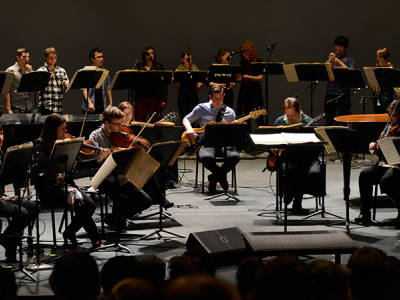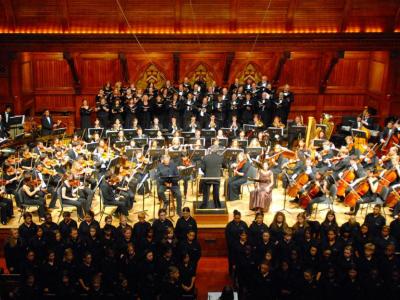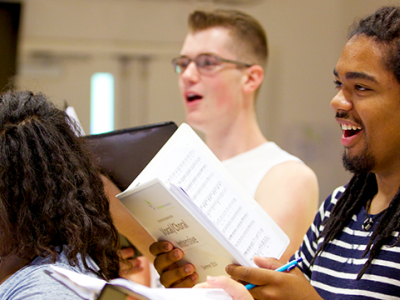What does a Cantor do?
While the term also applies to the chief singer or choir director at a Christian worship service, as a profession, cantor generally refers to the inspiring and multifaceted singers who lead the Jewish congregation in song and prayer. The Jewish cantor is a complex spiritual leadership position that involves organizing the synagogue's music programs, educating new members of the congregation and converts to Judaism on Torah reading and ritual, working with current members to prepare for major life events, and officiating said events when the time comes.
Cantors truly are involved with the congregation through every major life event; this includes the devastating as well as the joyous.
For over a thousand years, the hallmark of a good cantor has been the combination of an attractive and powerful voice with an emotive and impassioned performance style. Today, however, cantors do more than sing and lead prayers; they are ordained clergy who preside over a host of life events including weddings, funerals, bar and bat mitzvahs, brises, and baby-naming ceremonies. They are also professional educators, helping members of the congregation prepare for their own part in major life ceremonies, teaching conversion students various aspects of the faith, and running the synagogue's music programs. As spiritual leaders, cantors sometimes work directly with the rabbi to make important decisions about the future of the congregation.
At a Glance
Working as a cantor requires a master's degree in sacred music from a seminary institution, of which there are two major ones in the United States: the Hebrew Union College(Opens in a new window) (reform) and the Jewish Theological Seminary(Opens in a new window) (conservative). These programs typically take about five years, and thoroughly prepare students for lifelong careers as cantors. After graduation, graduates generally begin working as full-fledged cantors for small, local congregations, or as assistant or associate cantors for larger, city-based ones.
More experienced cantors might find work with larger congregations, which are usually better funded, and where they may have their own associate cantors assisting with day-to-day clergy work. With assistants taking care of administrative work, seasoned cantors may be able to turn their focus to more specialized and creative tasks, like theological research, music composition, and new educational initiatives.
Getting accepted to a sacred music program at a seminary is the first step to finding work as a cantor. These institutions are highly selective, sometimes taking as few as five students a year. In preparation, applicants should do whatever they can to tangibly demonstrate the depth of their faith, liturgical knowledge, and passion for education. Once accepted to a program, aspiring cantors begin to lay the groundwork for their careers by working as volunteers or assistants in their local religious school, becoming soloists in a temple choir, serving as cantorial interns at a synagogue, or interviewing professional cantors in the area to get a sense of where positions might be available.
- Vocal performance
- Music theory
- Composition
- Liturgy and sacred music
- Hebrew (and, to a lesser extent, Yiddish)
- Other musical instruments, especially guitar
- Leadership
- Emotional intelligence (empathy)
Although this is certainly a musical role, it is even more so an interpersonal one. As educators and congregation leaders, cantors must be friendly, patient, and committed to a life of service. In addition to spending large amounts of time working with and attending to the needs of children and families, cantors also help members of the congregation through major life events that fall anywhere on the spectrum from joyous to devastating—a duty that requires empathy, sensitivity, and genuine caring.
Cantors usually work six days per week, including Friday nights, Saturday and Sunday mornings, and all major religious holidays. As pastoral caregivers, they are sometimes called upon to serve individuals in their community outside of work hours, whether that means making a typical social call, paying a visit to a hospitalized congregation member, or providing emotional support in the wake of an unexpected tragedy. The work is demanding and the hours are long, but such is a life of service, and the rewards—both spiritual and emotional—are great.







